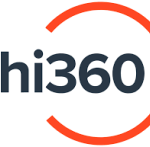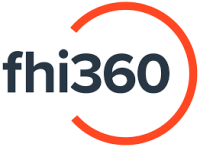Applications are now open for the UJALA African Scholars Program. The UJALA African Scholars Program supports African scholars to lead rigorous, policy-relevant impact evaluations in agriculture across the globe.
Eligibility Criteria
The program is open to resident and non-resident African scholars conducting research aligned with UJALA’s research priorities. Specific requirements include:
- Academic background: PhD in Economics, Agricultural Economics, or a related empirical discipline.
- Quantitative skills: Advanced level of econometrics, statistics, and data analysis is required, along with proficiency in either Stata or R.
- Language skills: Advanced proficiency in English (i.e., fluent or native-level) is required to engage with training, mentorship, and research activities.
- Professional affiliation:
- Resident scholars must be based at an academic institution in Africa.
Non-resident scholars must have completed high school in Africa and be currently based at an academic institution abroad.
- Resident scholars must be based at an academic institution in Africa.
- Research focus: Interest in development economics, impact evaluation, and randomized controlled trials, with a focus on agriculture.
- Program commitment: Willingness and availability to complete all program components, including training and any recommended coursework, mentorship activities, and research engagements.
- Prior engagement (preferred): Candidates affiliated with UM6P or who have collaborated with OCP-affiliated entities or their partners will receive priority consideration.
Applicants must not be current J-PAL affiliates or invited researchers. Prior collaboration with J-PAL researchers in those roles is not disqualifying, as long as the applicant meets the eligibility criteria.
Program Components
Training and education
During the first phase of the program, some scholars might be recommended to complete one or two courses from the Data, Economics, and Design of Policy MicroMasters (DEDP), particularly if they are new to impact evaluation or need a refresher on key concepts. Course fees will be covered by UJALA.
Mentorship
Mentorship begins after the scholar successfully completes the training components of the UJALA African Scholars Program, submits a Letter of Interest (LOI), and is invited to submit a full proposal following a positive review of their LOI.
Each funded scholar is paired with a J-PAL affiliated or invited researcher who provides tailored, hands-on guidance throughout the grant period.
Research funding
Scholars can apply for up to $75,000 (pre-tax) in pilot grant funding to design and implement early-stage RCTs. Funding covers field costs, research design, and researcher time (up to a certain percentage; see the funding section in the FAQ for details).
Professional development
Scholars will develop practical skills in designing and running randomized evaluations, including drafting proposals and corresponding budgets, responding to peer reviews, and communicating research findings.
Networking and collaboration
UJALA African Scholars Program participants will work closely with their cohort peers and mentors while developing their research projects and building connections through shared learning and collaboration.
Visibility and engagement
Scholars may have opportunities to share their work at UJALA and partner events. Their projects may also be featured in newsletters, social media posts, or other platforms to highlight key milestones and achievements.
For More Information:





